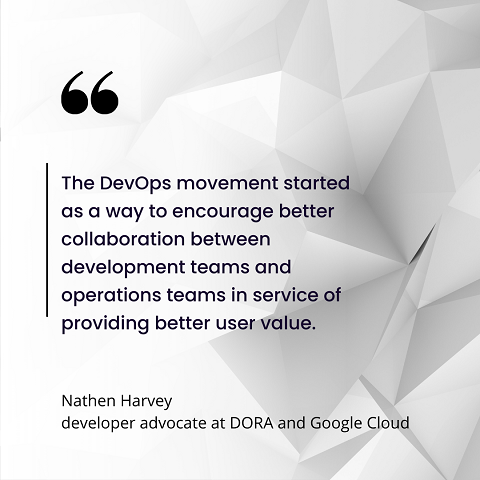Google DORA 2023 State of DevOps Report Finds Culture, User Focus Key to SuccessGoogle DORA 2023 State of DevOps Report Finds Culture, User Focus Key to Success
Looking to improve DevOps operations? A new Google report suggests focusing on culture and users.

A new report from Google Cloud's DevOps Research and Assessment (DORA) team highlights the importance of organizational culture and focusing on users as pillars of successful software delivery.
The 2023 State of DevOps Report analyzed data from more than 36,000 IT professionals worldwide collected through the largest survey of its kind over the past nine years. This year's report follows the 2022 survey, which found growing adoption of tools and techniques to help secure the software supply chain.
The 2023 annual report examined key outcomes for DevOps practices, including organizational performance in creating customer value, enabling team innovation and collaboration, and supporting employee well-being through reduced burnout and higher satisfaction.
Related: ITPro Today's 2023 IT Priorities Survey Report
Software delivery performance was measured based on important metrics like deployment frequency, lead time for changes, failure rates during deployments, and time spent recovering from failures. Analysis of these metrics classified respondents into four main performance levels, including an "Elite" cohort that returned this year.
Key findings from the report include:
Organizational culture lays the foundation. Teams with a healthy, generative culture where people feel included see 30% higher organizational performance.
Focusing on users pays dividends. Teams taking a user-centric approach enjoyed up to 40% greater organizational performance.
Documentation matters. High-quality documentation increased key metrics for individuals such as productivity by 25%.
Infrastructure flexibility unlocks value.Public cloud users leveraged elastic scaling 22% more than other setups.
"The DevOps movement started as a way to encourage better collaboration between development teams and operations teams in service of providing better user value," Nathen Harvey, developer advocate at DORA and Google Cloud, told ITPro Today. "Today, high-performing technology-driven organizations recognize the importance of alignment across all teams to reach organizational goals."
Why a Healthy Culture Is Critical to DevOps Success
Among the trends identified in the report is the role of having a strong user focus and a healthy culture.
Harvey noted that the report looked at how well teams understand the needs of their users, how their work is aligned toward meeting those goals, and how feedback is used when prioritizing work — in other words, how user-centric a team is.
"We expected to find a good connection between this user-centric approach and overall outcomes but were somewhat surprised to see that teams with a strong user focus have 40% higher organizational performance," he said.
Looking at culture within DevOps teams, there are multiple factors that can lead to success. The DORA researchers looked at factors such as work distribution, work arrangements, organizational stability, job security, and knowledge sharing, Harvey said.

Harvey-Google-Cloud
The DORA research indicates that a healthy culture is crucial for reducing burnout, increasing productivity, and increasing job satisfaction in an organization. This is a consistent theme throughout the last few years of the DORA research, and something that Harvey said is still important for organizations to focus on.
"Culture is shaped by leaders. They have a big impact on many of the factors we evaluate," he said. "Setting incentive structures and performance indicators that help align the organization and providing teams the autonomy to deliver are some of the ways that leaders can help."
The Impact of AI on DevOps
While artificial intelligence adoption is growing, its impact is still unknown, according to the research.
Using some of DORA's performance metrics can help guide a team's approach to experimenting with AI. For example, Harvey noted that the research saw that teams with faster code review times saw a 50% improvement on their software delivery performance. A team with slower code reviews might try using AI as part of their code review process to see how that impacts their software delivery performance.
Related: The Downside of DevOps: Stress and Burnout of Engineers
It's also important to keep an eye on the other factors, such as team performance and burnout.
"We see that the use of AI tools predicts moderate improvements to employee well-being — that's a good start," Harvey said. "Beyond that, we expect it will take more time with these tools before we see a meaningful impact on organizational performance."
Read more about:
Alphabet Inc.About the Author
You May Also Like








.jpg?width=700&auto=webp&quality=80&disable=upscale)
